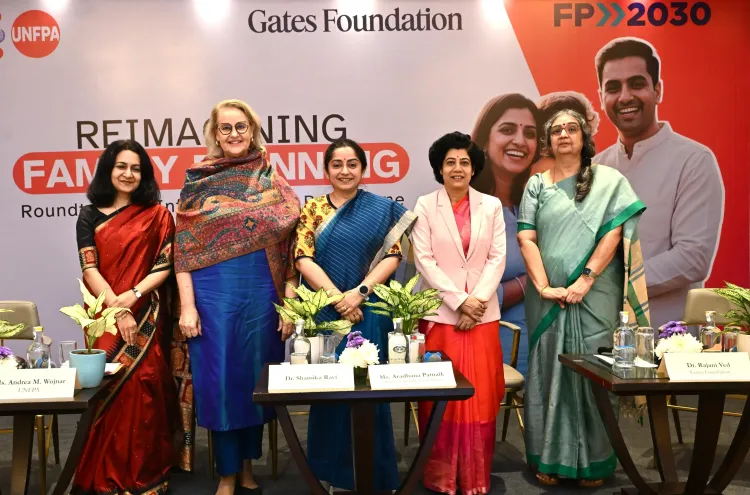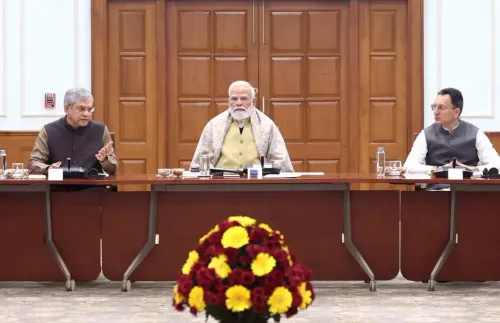How Can Localised Strategies and Precision Policies Enhance Family Planning in India?

Synopsis
Key Takeaways
- Localized strategies are essential for effective family planning.
- Precision policy making is crucial to address diverse needs.
- India's Total Fertility Rate has decreased to 2.0.
- There is a 9.4% unmet need for family planning among women.
- Family planning involves shared responsibilities among partners.
New Delhi, Nov 20 (NationPress) Adapting strategies to meet diverse needs and implementing precision policies is vital for enhancing family planning initiatives in India, as stated by senior government officials. During a roundtable organized by the United Nations Population Fund (UNFPA), officials from the Prime Minister’s Economic Advisory Council (EAC-PM) and the Ministry of Health and Family Welfare (MoHFW) discussed ways to refine family planning policies and programs to correspond with the country's evolving population dynamics.
The specialists reviewed India's shifting demographic landscape, characterized by decreasing fertility rates and the ongoing necessity to increase access to quality family planning services.
Dr. Shamika Ravi, a Member of the Economic Advisory Council to the Prime Minister (EAC-PM), highlighted, "India's diversity necessitates precision in policy formulation. Each region, village, and block has unique social contexts, needs, and challenges. A uniform approach does not suffice. To achieve tangible outcomes, we must localize our strategies and tailor interventions to what is pertinent on the ground in every area of the country. Precision policy development is not merely desirable; it is crucial to make sure that programs effectively reach those who need them the most, in their preferred manner."
Aradhana Patnaik, Additional Secretary and Mission Director of the National Health Mission, MoHFW, emphasized, "Family planning transcends being a woman’s concern; it is a family matter. This is why, in addition to woman-centric gatherings, the Ministry also hosts family-inclusive events to emphasize the importance of joint decision-making between husbands and wives. When couples share responsibilities and decision-making, we progress towards our core objective: healthy mothers, healthy babies, and healthy families. Partnership is fundamental to authentic reproductive choice."
The roundtable convened at a pivotal time, as India's Total Fertility Rate (TFR) has dropped to 2.0, below the replacement threshold of 2.1, while millions of women still lack access to the family planning services they desire.
With an unmet need at 9.4 percent, this gap impacts an estimated 47 million women, highlighting the urgency of enhancing access, choice, and quality in family planning.
Andrea M. Wojnar, UNFPA India Representative, remarked, "India is at a crucial juncture in its demographic trajectory. Given the current fertility trends, it is essential to prioritize reproductive rights, choices, and comprehensive reproductive health for all. This roundtable signifies a significant step towards developing a future-oriented, evidence-based family planning agenda that centers on individuals, particularly young women and those with unmet needs, within national policy and socio-economic development."
The discussions underscored that while India has made considerable strides, the family planning agenda remains a work in progress. Continuous investments and an expanded definition of reproductive health, including infertility care, were advocated.
Participants also urged for policy advancements to steer future family planning strategies and priorities, while reinforcing consensus among stakeholders on choice-focused principles, regardless of fertility rates.










